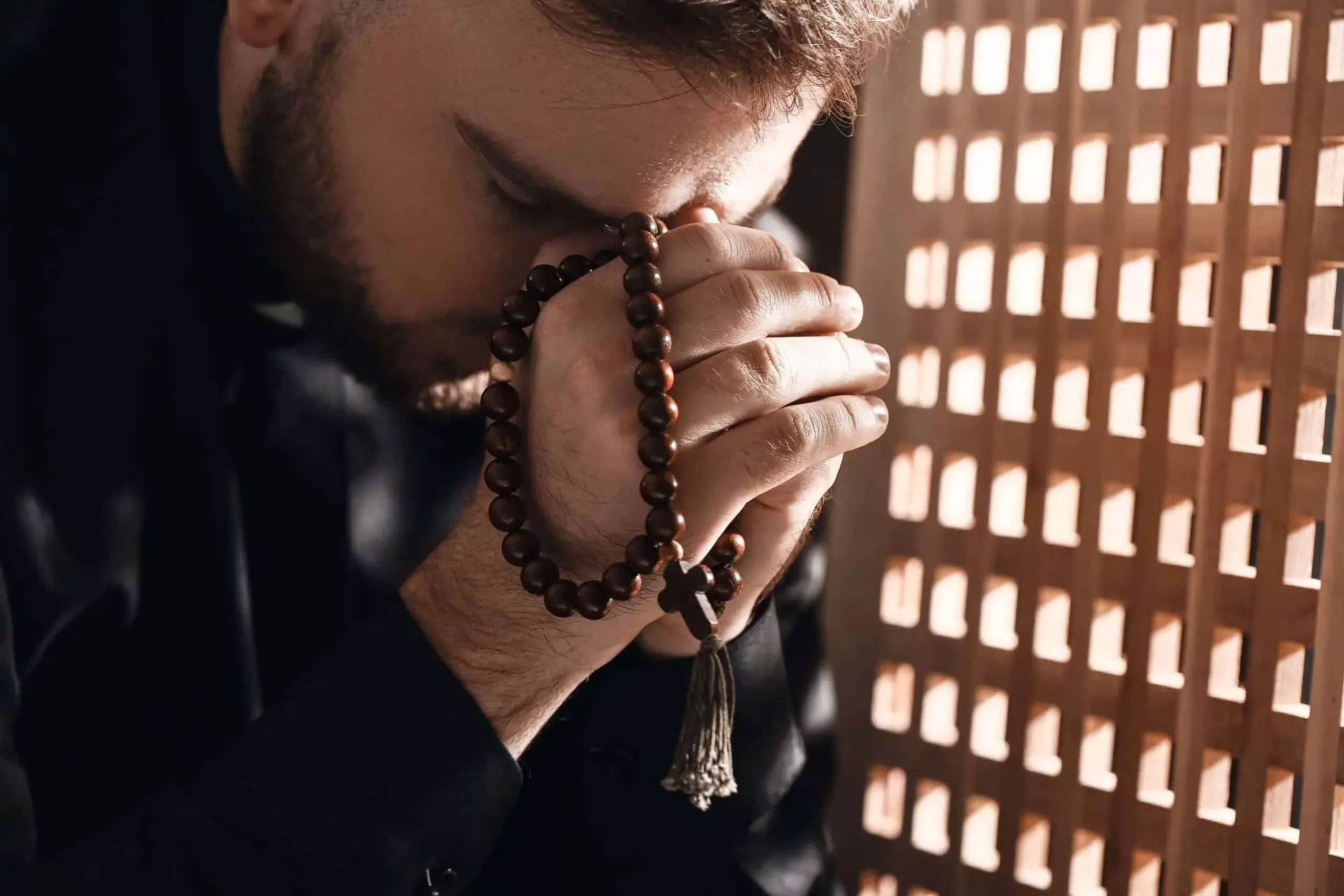
The Power of Contrition: A Grace That Transforms the Soul
In the wake of the French Revolution, when the government loosened its grip on the Church enough to let her work, there was a small group of young friends who lived in Paris. They were atheists, though some were raised Catholic, and their favored pastime making fun of the faith. On a bet, just to prove how useless religion was, some of the comrades dared one of their former-Catholic friends, who was the most spiteful to the faith, to go into the confessional booth and have his confession heard.
They expected him to continue to live a life of sin thereafter as before. Jeeringly he went in with his friends who were waiting at the back of the church to make sure he made good on his end of the bargain. The priest in the booth overheard their banter, he expected the atheist on the other side of the screen. The young man jocularly recited his sins, not taking the sacrament seriously at all.
When the young man was finished, the priest asked if he was sorry for his sins. To not lose the bet, he did so, and so the priest gave him absolution and a very simple penance. “For your penance,” he said, “go to the communion rail, look up to the crucifix, and say straight to God’s face, ‘I don’t care that You did this for me!’” Taken aback at the strange penance, the young man agreed and left.
His friends wouldn’t give him the bet money unless he did his penance, so he walked up to the communion rail, knelt down, looked at the large crucifix hanging over the altar, and tried to speak his penance, finding that he could not. Instead, he began to weep, to his friends’ confusion. The full force of the young man’s indifference and hatred suddenly dawned on him in this moment. He saw what God did to show how He loved him, and realized how cruel he had been to God, at his own expense. This was the moment grace entered his life in the gift of contrition.[1]
A Story of Unexpected Conversion and Grace
Many people in this modern age are looking for genuineness. The concrete, the true, the fullness of living. To be genuine means to be honest and sincere, never being two-faced or quick to lie. Sin, in all its forms, is being ingenuine to ourselves. It was not in the original divine plan for man’s life. Indeed, sin, though hard to believe today, is not natural to man. It is the infection of depravity in human nature; it is an illness, a wound, a lie. The perennial lie being that we can become like God without God; all sins have this characteristic in ways subtle or explicit.
The Genuine Life: Fighting Sin with Authenticity
The secret of Catholicism’s position on being genuine is simple, become the saint you were always meant to be. To ‘become perfect as your Heavenly Father is perfect’. (Mt 5:48, RSVCE 2nd). There is an innate realism to the situation. Something wrong happened in man (sin), and man needed to be saved from it, he needed to be redeemed. This is why Jesus came, and in John 20:19-23, gave the Apostles, and through them the whole Church, the gift of the sacrament of Confession.[2]
It is in the context of this sacrament that we encounter Christ today, and personally ask Him for the forgiveness of our sins in the way He established that we should. This being said we need contrition, and genuine contrition, in order to be disposed to receive the full effect of God’s grace in this blessed gift. St. Thomas Aquinas teaches that contrition, as a disposition of the soul born out of humility, is a virtue.[3]
Alongside the sacrament of Confession, contrition as a virtue is the internal cause of our being forgiven by God. It is the disposition needed in order to be forgiven for our sins and thus become substantially justified (brought into the right relationship with God). Contrition is a grace and should be prayed for to be attained. By it, we are disposed to receive God’s love. Further, to overcome sin, especially habitual sin, we need to frequent the sacrament of Confession as often as is needed.
Confession and Contrition: God’s Gifts for Healing
The truly Catholic Christian knows this, that there is good and evil in the world, and that we, by the wound of original sin (concupiscence[4]), easily find ourselves doing what we should not be doing.[5] He also knows that God is all-good and will forgive Him any sin. That no man is beyond hope. The only man that God cannot save is a man who will not let himself be saved; this is hopelessness. Contrition, in essence, is our feebly holding out our hands, wounded by our own doing, begging for our Father to heal them. Confession is our opportunity to be healed. Do not miss the opportunity!
By: Brother Angelo Marie final professed member of the Knights of the Holy Eucharist
[1] I heard this story a long time ago, and it stayed with me to this day. I may have heard it in a homily once.
[2] CCC. 1485, “”On the evening of that day, the first day of the week,” Jesus showed himself to his apostles. “He breathed on them, and said to them: ‘Receive the Holy Spirit. If you forgive the sins of any, they are forgiven; if you retain the sins of any, they are retained”‘ (Jn 20:19, 22-23).”
[3] Thomas Aquinas, Summa Theologica, Sup. III, q. 5, a. 1.
[4] Our proneness towards sin.
[5] (Rom 7:19): Saint Paul, “For I do not do the good that I want, but the evil I do not want is what I do.”
